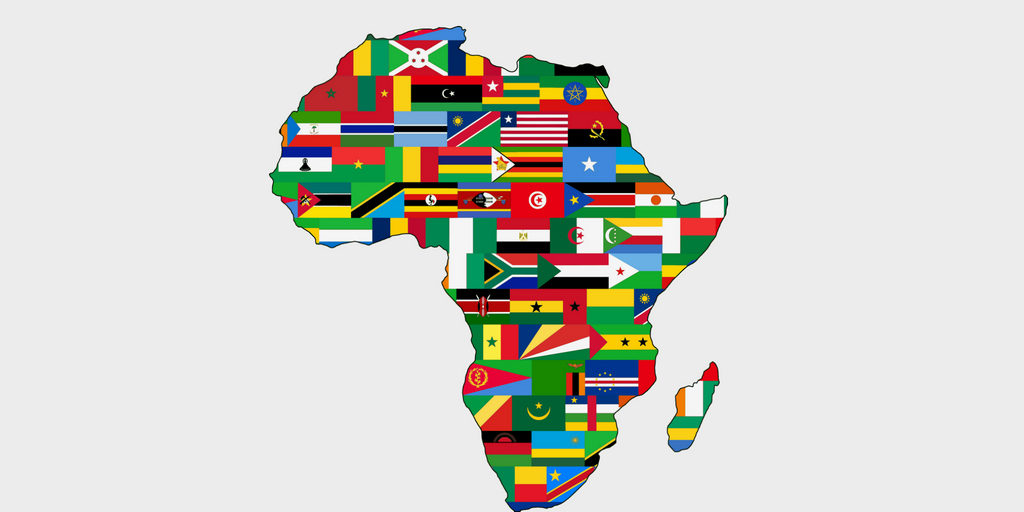Advertisement
Technological innovations in Africa might not seem impressive due to the current state of countries in the continent, but once upon a time, Africa had the best technological innovations, and its people set the technological standards for the rest of the world.

Advertisement
In ancient times, Africans created mathematical concepts, medicines, and architectural wonders that still leave scientists stunned today.
However, in recent times, Africa has become a backbencher known majorly for its past achievements in certain fields of study.
Advertisement
Today, there are few notable technological innovations in Africa, and seven of them are listed below:
Table of Contents
Nano Mask by Dr Joseph Nderitu
Joseph Nderitu a scientist and medical doctor based in Kenyatta National Hospital, Kenta, realized that most of the masks available during the Covid-19 pandemic were substandard and weren’t offering the required protection to Health workers and patients. This discovery prompted Dr. Joseph to create a mask using nanotechnology. This mask eliminates viruses on impact, and the users can re-use them without adverse effects.
CURE Bionics by Mohamed Dhaouafi

Mohamed Dhaouafi created cure bionics to print 3d limbs for amputees and disabled individuals.
Mohamed decided to find a solution to help people with disabilities because his friend’s cousin had been born without upper limbs and couldn’t afford to purchase prosthetics.
Mohamed’s bionic hands come with rotating wrists, a mechanical thumb and fingers that bend at the joints. Mohamed’s bionic hand also supports solar power, and it’s adjustable to accommodate the user’s growth.
click here for sport news or click here for the latest entertainment news
Kubeko by Noel N’guessan
Africa lays claim to about 60 percent of the total amount of arable, uncultivated land on earth. Despite this large mass of GOD-given resources, the continent has a poor amount of agricultural produce.
Also, the lack of effective tech makes many parts of the agricultural harvest go to waste in Africa.
This poor trend is what prompted Ivorian NOel N’guessan to design an array of cheap machines to process biowaste products. Farmers can use Noel’s Kubeko biogas system and composter to produce fertilizers from their waste products instead of buying them.
Reeddi by Olugbenga Olubanjo
According to the African Development Bank (AfDB), 40 percent of Africans have access to electricity. As a result, businesses have to provide electricity for themselves through the use of generators. This is both costly and bad for the environment.

Nigeria’s Olubanjo tackles this problem by creating a compact and portable solar-powered battery called Reeddi that people can rent at lower prices. With Reeddi’s battery, businesses spend less than 10 percent on electricity.
Currently, 600 households and businesses in Lagos use the product every month. The company plans to expand further in Nigeria before taking the products to other nations in Africa and Southeast Asia.
Article content continues below;
More Articles
- Dstv Now: How to watch Dstv for free on Android
- Best Power Bank for iPhones
- Top 10 Of The Best Universities in Nigeria 2025 – A Detailed Analysis
- MTN Free Browsing Cheat Codes
- Top 3 of the best password managers for Smartphones and Desktop
- Cristiano Ronaldo in tears in a recent interview
- DJ Cuppy has Accidentally gone nude in a new viral clip
- All Cristiano Ronaldo Records and Achievements
- Davido’s net worth and awards 2025
- Wizkid’s net worth and awards 2025
- More celebrity profiles
Ecological robot by Xaviera Kowo
With Africa’s burgeoning population, the issue of waste management has become increasingly critical, far outstripping the existing measures in place to tackle it effectively. As urbanization and industrialization accelerate across the continent, so does the generation of waste. Despite efforts to implement waste management systems, the sheer volume of waste produced often overwhelms these infrastructures.
According to projections by researchers, the situation is expected to worsen significantly in the coming decades. By 2050, it is estimated that Africa’s waste volumes will triple, reaching a staggering 516 million tonnes per year. This exponential increase poses a severe challenge to already strained waste management facilities and resources. Inadequate waste management not only leads to environmental degradation but also poses serious health risks to the population.
One alarming consequence of inadequate waste management is the rise in deaths resulting from outdoor air pollution. Over the past two decades, the African continent has witnessed a staggering increase of nearly 60 percent in fatalities linked to outdoor air pollution. This trend is deeply concerning and underscores the urgent need for comprehensive measures to address waste management and its associated environmental and health impacts.
Efforts to combat these challenges require a multifaceted approach. Governments, in collaboration with international organizations and local communities, must prioritize investments in waste management infrastructure, including recycling facilities, landfill management, and waste-to-energy technologies. Additionally, raising public awareness about the importance of waste reduction, recycling, and responsible consumption habits is crucial in mitigating the escalating waste crisis.
By implementing sustainable waste management practices and fostering a culture of environmental stewardship, Africa can work towards mitigating the detrimental effects of its growing waste problem, safeguarding both the environment and public health for future generations.
18-year-old Xaviera Kowo however designed a machine to tackle this issue, he created the ecological robot. This waste collection robot automatically picks up waste in public spaces and deposits it in bins, recycling centres and other processing sites in record time.
Don’t miss out! Know when next we publish, click on the button below;
You can also subscribe to our newsletter below, we never spam.
Advertisement



